Find Help
More Items From Ergsy search
-
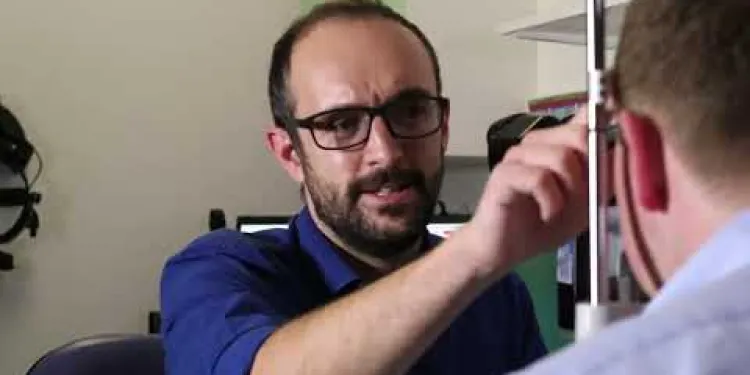
Glaucoma: about the Ophthalmology Team at University Hospitals Birmingham NHS Foundation Trust
Relevance: 100%
-
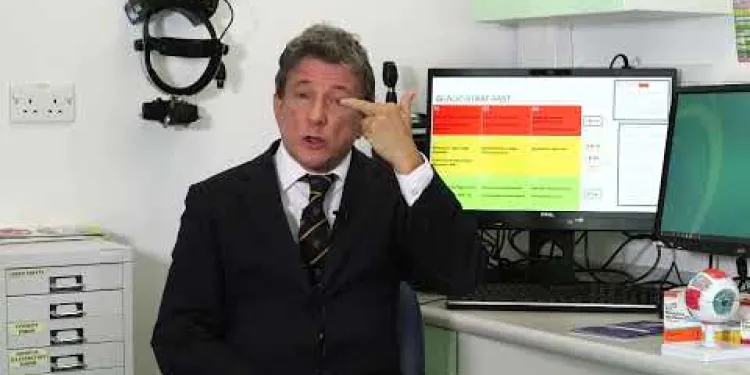
Glaucoma: symptoms in glaucoma
Relevance: 67%
-
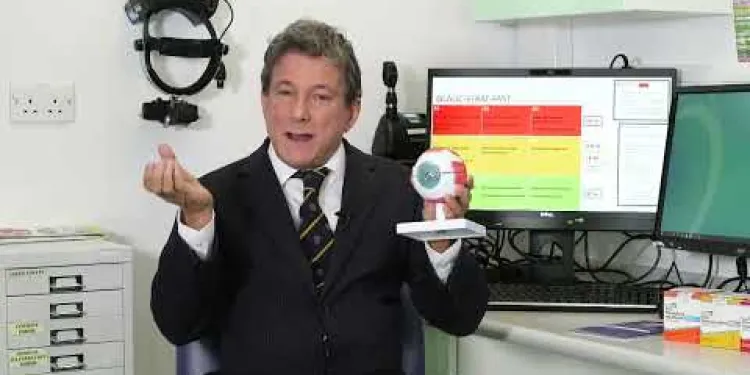
Glaucoma: what is glaucoma?
Relevance: 67%
-

What is the difference between hypotony and glaucoma?
Relevance: 54%
-
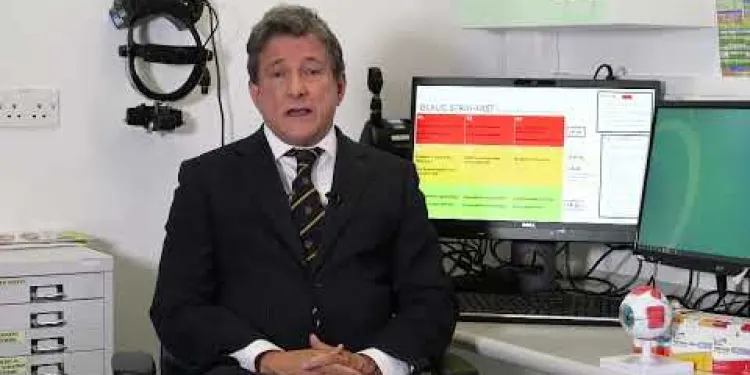
Glaucoma: how does it affect my ability to drive?
Relevance: 51%
-
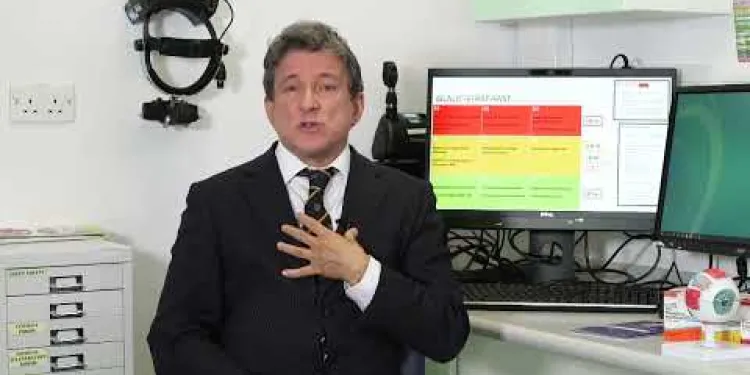
Glaucoma: general side effects of eye drops
Relevance: 51%
-
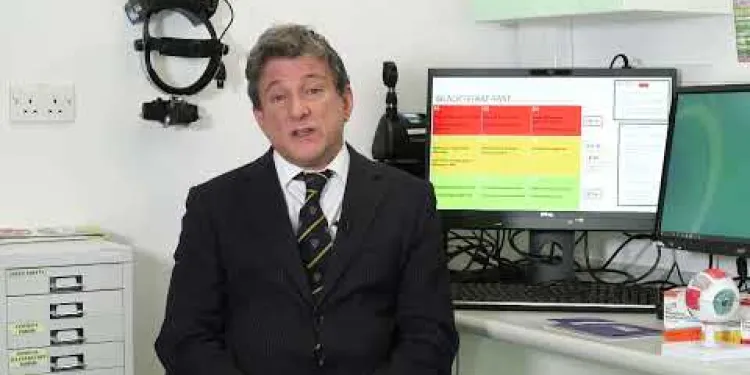
Glaucoma: how often should i take my eye drops?
Relevance: 49%
-
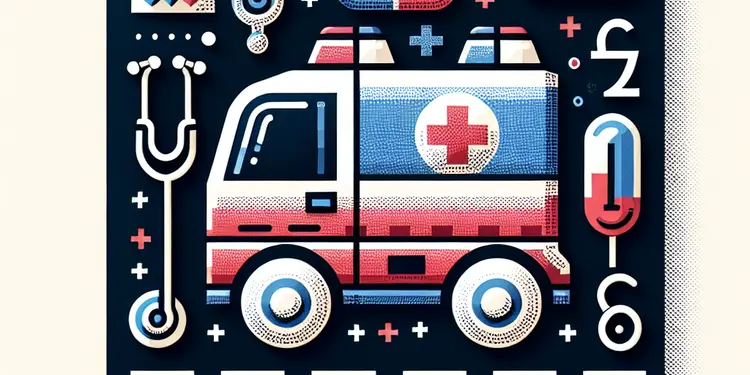
Is hypotony a medical emergency?
Relevance: 24%
-
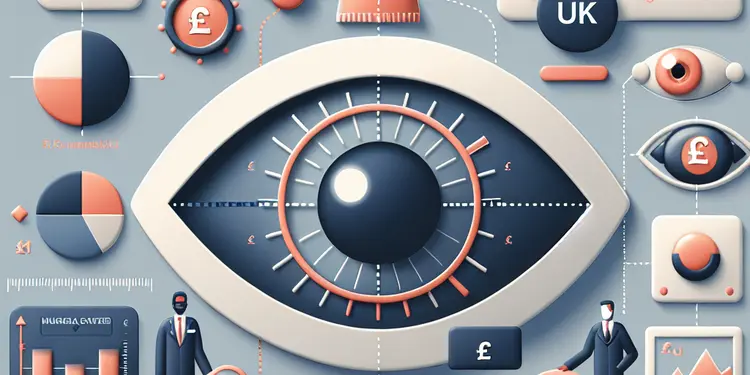
What is the normal range of intraocular pressure?
Relevance: 22%
-
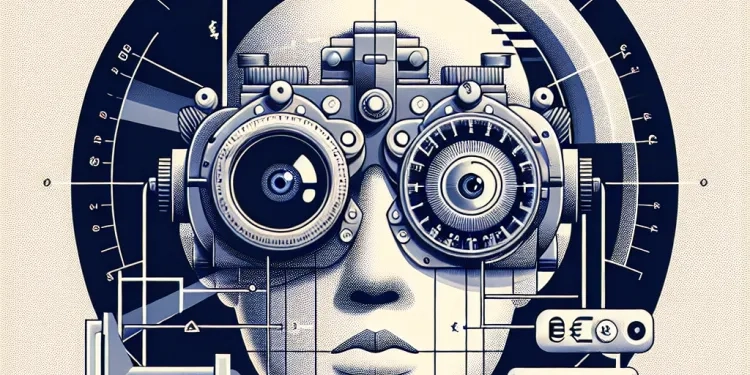
Are there any self-tests for eye pressure?
Relevance: 21%
-
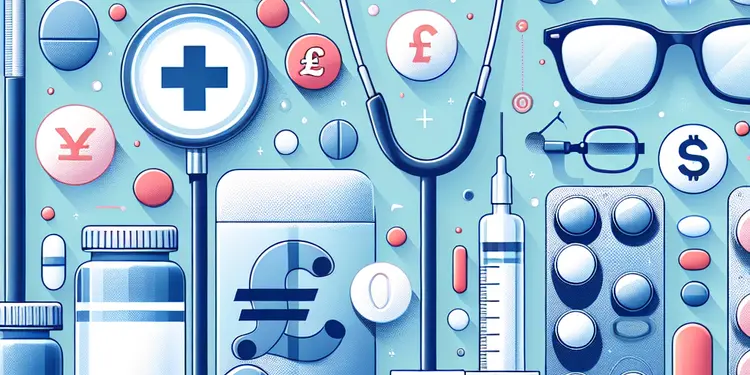
Do certain medications contribute to hypotony?
Relevance: 20%
-

Are there any risk factors for developing hypotony?
Relevance: 20%
-

What is hypotony in the eye?
Relevance: 20%
-
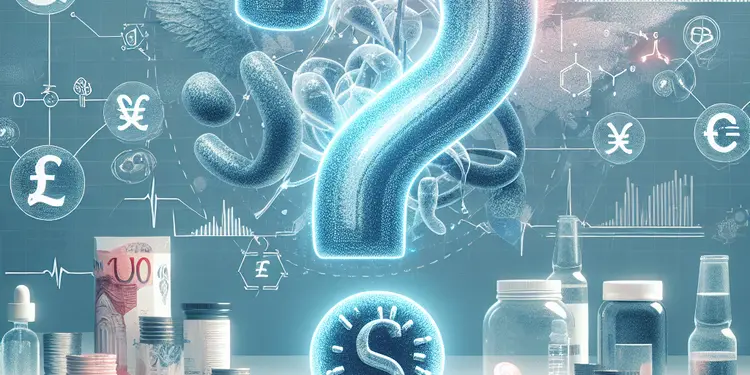
How common is hypotony?
Relevance: 20%
-

Can hypotony affect vision?
Relevance: 19%
-

In what ways can vision impairments impact driving for those over 70?
Relevance: 17%
-

What causes hypotony?
Relevance: 17%
-

Can hypotony occur in both eyes?
Relevance: 17%
-
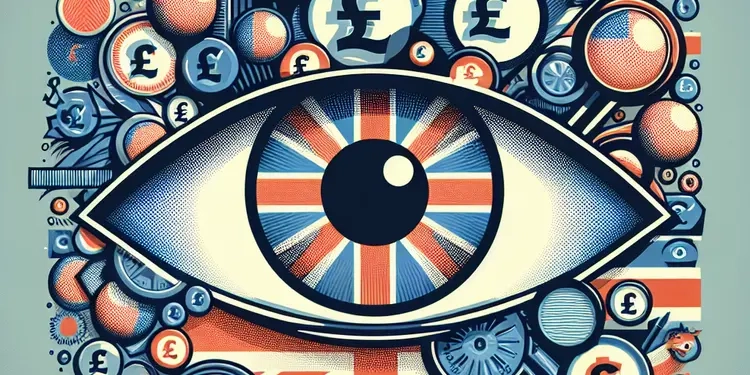
What is the eye condition hypotony?
Relevance: 16%
-
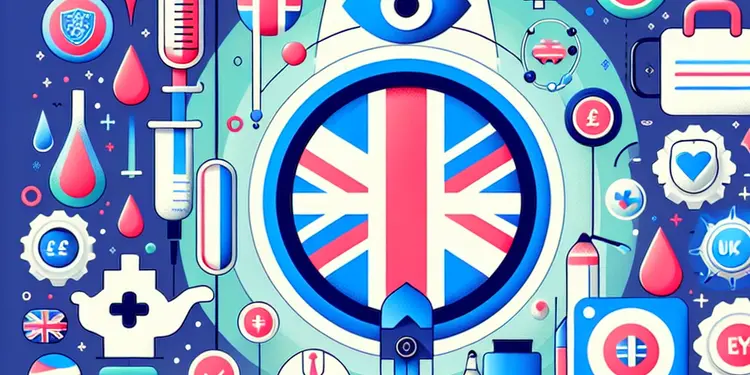
Can hypotony be prevented?
Relevance: 16%
-
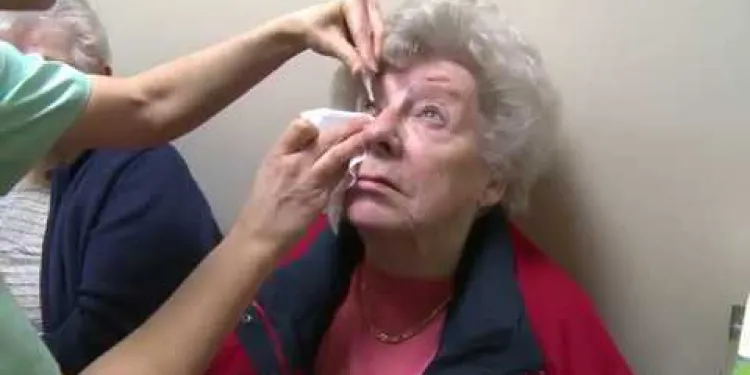
Eye Injections at Royal Bournemouth Hospital
Relevance: 15%
-

Eye Injections at Royal Bournemouth Hospital
Relevance: 13%
-

Can self-testing detect all eye conditions?
Relevance: 12%
-

Can hypotony resolve on its own?
Relevance: 12%
-
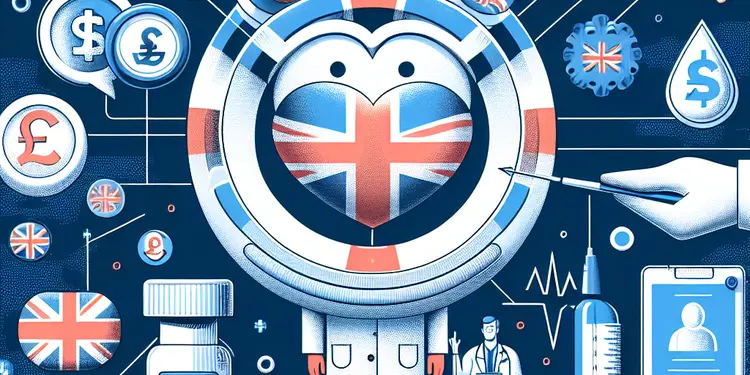
What treatments are available for hypotony?
Relevance: 12%
-
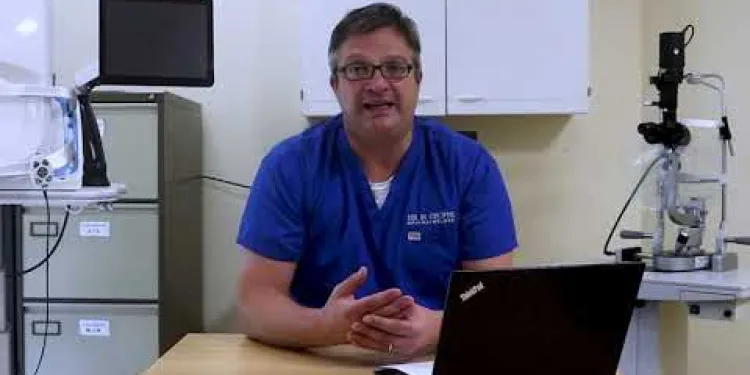
Charles Bonnet Syndrome
Relevance: 11%
-
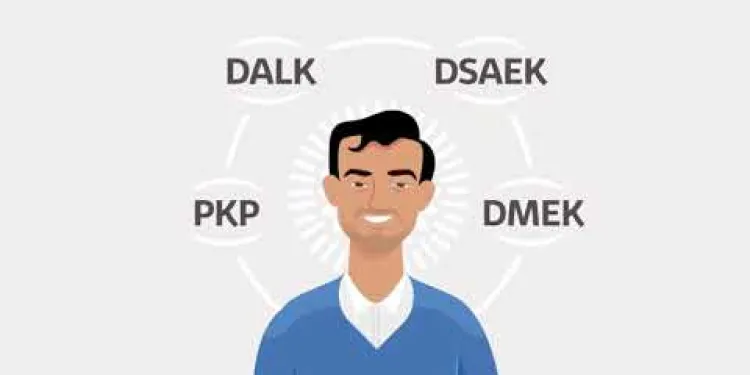
Cornea transplant patient Information
Relevance: 11%
-
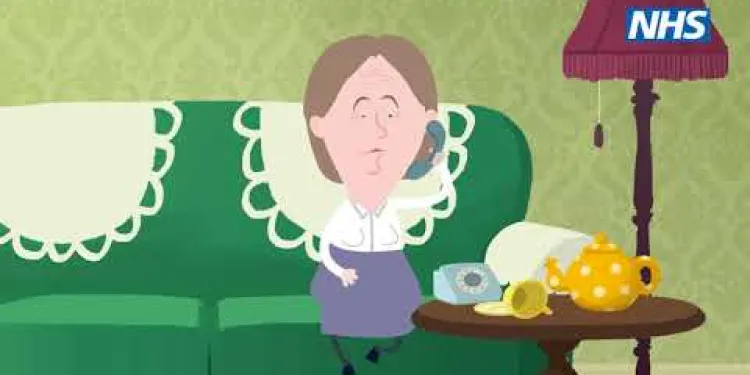
West Midlands LEHN Animated Video on Eye Health
Relevance: 11%
-
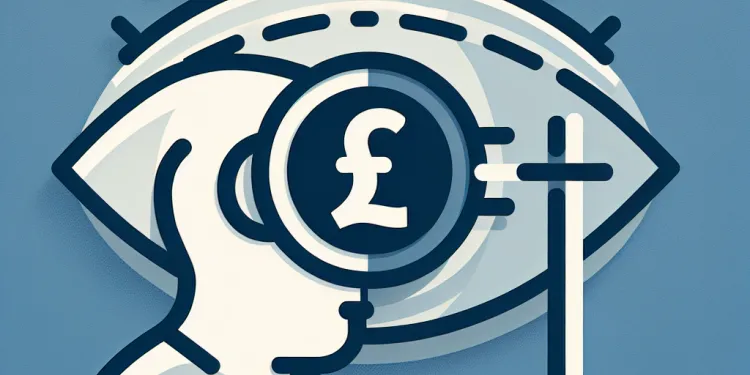
How does self testing for eye patients work?
Relevance: 10%
-
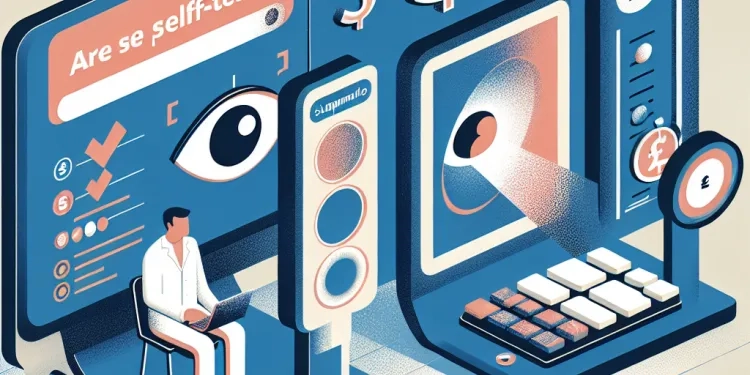
Are self-tests a substitute for professional eye exams?
Relevance: 10%
-

What complications can arise from untreated hypotony?
Relevance: 9%
-

What types of self-tests are available for eye patients?
Relevance: 8%
-

What is self-testing for eye patients?
Relevance: 7%
-

What are the uses of cannabis extract?
Relevance: 7%
-

Where can I find reliable self-testing tools for my eyes?
Relevance: 7%
-

Do I need any special equipment for eye self-testing?
Relevance: 7%
-
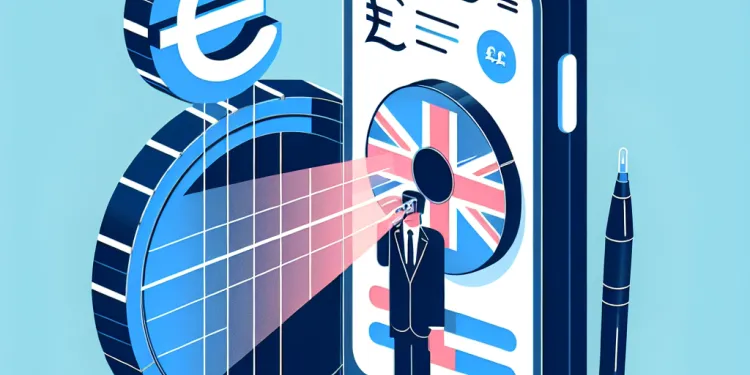
Can I use a smartphone for self-testing my eyes?
Relevance: 7%
-

What are the limitations of self-testing for eyes?
Relevance: 7%
-
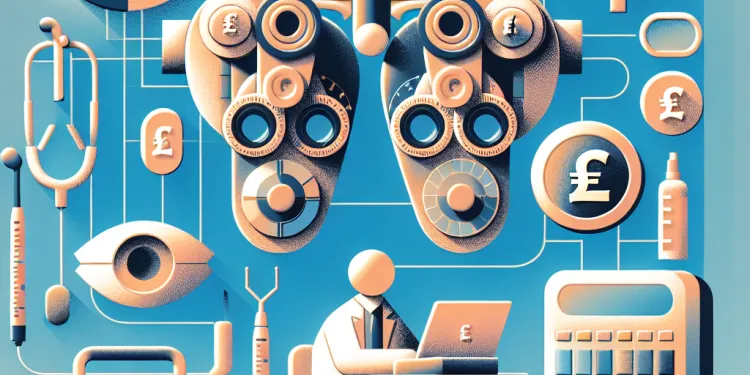
Should I share the results of my self-tests with my eye doctor?
Relevance: 7%
-

What is congenital rubella syndrome?
Relevance: 7%
Glaucoma: Understanding the Condition and the Expertise at University Hospitals Birmingham NHS Foundation Trust
What is Glaucoma?
Glaucoma is a group of eye conditions that damage the optic nerve, essential for good vision. This damage is often caused by abnormally high pressure in the eye. Glaucoma is considered one of the leading causes of blindness for people over the age of 60. Early detection and treatment are vital to prevent vision loss.
Why Choose University Hospitals Birmingham NHS Foundation Trust?
University Hospitals Birmingham NHS Foundation Trust (UHB) is renowned for its expertise and comprehensive care in managing glaucoma. The ophthalmology team at UHB is dedicated to providing the highest standard of care through advanced diagnostic tools, state-of-the-art treatment methods, and robust patient support systems.
The Expertise of the Ophthalmology Team
The ophthalmology team at UHB comprises highly skilled and experienced ophthalmologists, optometrists, and specialized nursing staff. Their in-depth knowledge and continuous professional development ensure that patients receive the most current and effective treatments available. The team works collaboratively, bringing together a wealth of expertise to manage even the most complex glaucoma cases.
Innovative Diagnostic and Treatment Options
At UHB, early detection of glaucoma is prioritized through regular eye examinations which include various diagnostic tests such as tonometry, pachymetry, and imaging techniques. For treatment, UHB offers a range of options including medication, laser treatments, and surgical interventions like trabeculectomy and glaucoma drainage devices. The advanced technology and personalized care plans aim to preserve vision and improve quality of life.
Comprehensive Patient Support and Education
Understanding that glaucoma is a lifelong condition, UHB places a strong emphasis on patient education and support. Patients are provided with detailed information about their condition and treatment options. Support groups and educational workshops are available to help patients manage their condition effectively and maintain their vision health.
Accessibility and Ongoing Care
The UHB ophthalmology team is committed to ensuring that glaucoma care is accessible to all patients. Regular follow-up appointments and a clear communication channel ensure that patients can easily access the care and advice they need. This continued support is vital for monitoring the progression of the disease and adjusting treatment plans accordingly.
Conclusion
University Hospitals Birmingham NHS Foundation Trust is a leading center for glaucoma care, utilizing the expertise of a dedicated ophthalmology team and advanced medical technology. Early detection, innovative treatments, and comprehensive patient support make UHB an excellent choice for those seeking effective management of glaucoma in the United Kingdom.
Glaucoma: Understanding the Condition and Care at University Hospitals Birmingham NHS Foundation Trust
What is Glaucoma?
Glaucoma is an eye disease. It can harm a part of the eye called the optic nerve, which is needed to see well. This harm is often due to high pressure inside the eye. Glaucoma is a common reason why people over 60 go blind. Finding it early and getting treatment can help stop vision loss.
Why Choose University Hospitals Birmingham NHS Foundation Trust?
University Hospitals Birmingham NHS Foundation Trust (UHB) is well-known for its skill in treating glaucoma. The eye care team at UHB gives top-quality care. They use the best tools and new treatments and support their patients well.
The Expertise of the Eye Care Team
The eye care team at UHB has very skilled eye doctors and nurses. They know a lot about eye care. They keep learning new things to give the best treatments. The team works together to handle even the toughest glaucoma problems.
New Ways to Find and Treat Glaucoma
At UHB, finding glaucoma early is important. They do regular eye checks with tests like tonometry and special imaging. For treatment, they offer medicines, laser treatments, and surgeries to help keep your sight and improve life quality.
Support and Learning for Patients
UHB knows that glaucoma lasts a lifetime. They focus on teaching and helping patients. People get lots of information about their condition and treatment choices. There are also support groups and classes to help manage glaucoma and keep eyes healthy.
Easy Access and Care
The eye team at UHB makes sure everyone can get glaucoma care. They have regular check-ups and open communication so patients can always get advice and support. This is important to watch how the disease changes and adjust treatments.
Conclusion
University Hospitals Birmingham NHS Foundation Trust is a top place for taking care of glaucoma. They have a great team and advanced technology. Early finding, new treatments, and full support make UHB a smart choice for anyone seeking help with glaucoma in the UK.
Frequently Asked Questions
What is Glaucoma?
Glaucoma is a group of eye conditions that damage the optic nerve, which is vital for good vision. This damage is often caused by an abnormally high pressure in your eye.
How is Glaucoma diagnosed?
Glaucoma is diagnosed through comprehensive eye exams, which may include measuring inner eye pressure, examining the optic nerve, performing visual field tests, and using imaging technology.
What are the symptoms of Glaucoma?
Glaucoma can be asymptomatic in its early stages. As it progresses, symptoms may include loss of peripheral vision, severe eye pain, blurred vision, halos around lights, and reddening of the eye.
Who is at risk of developing Glaucoma?
Risk factors include age (over 40), family history of glaucoma, high eye pressure, certain medical conditions (such as diabetes and hypertension), and prolonged use of corticosteroid medications.
What are the treatment options for Glaucoma?
Treatment options include prescription eye drops, oral medications, laser treatment, and surgical procedures to lower the pressure in the eye.
What is the role of the ophthalmology team at University Hospitals Birmingham NHS Foundation Trust?
The ophthalmology team at University Hospitals Birmingham NHS Foundation Trust offers specialized care for eye conditions including Glaucoma, providing diagnosis, treatment, and management services.
How can I make an appointment with the ophthalmology team?
You can make an appointment by getting a referral from your GP or optometrist. Contact University Hospitals Birmingham NHS Foundation Trust for further details on the referral process.
Is there a cure for Glaucoma?
There is no cure for Glaucoma, but it can be managed successfully with early detection and treatment to prevent vision loss.
Can Glaucoma cause blindness?
If left untreated, Glaucoma can lead to permanent vision loss and blindness. Early detection and treatment are crucial to prevent this.
Can I drive if I have Glaucoma?
Driving with Glaucoma depends on the extent of vision loss. You must meet the DVLA's vision standards for driving. Your consultant will advise you on this.
What lifestyle changes can help manage Glaucoma?
Maintaining a healthy lifestyle, including regular exercise, a balanced diet, and avoiding smoking, can help manage Glaucoma. Regular eye check-ups are also crucial.
How often should I have my eyes tested if I have Glaucoma?
Once diagnosed with Glaucoma, you should have regular follow-up appointments as recommended by your ophthalmologist, typically every 3 to 12 months.
What types of surgeries are performed for Glaucoma at University Hospitals Birmingham?
The types of surgeries for Glaucoma include trabeculectomy, glaucoma drainage implants, and minimally invasive glaucoma surgery (MIGS). Your consultant will determine the best option for you.
Are there any support groups for Glaucoma patients in the UK?
Yes, there are several support groups and charities, such as the International Glaucoma Association (IGA), that provide resources and support for Glaucoma patients in the UK.
What should I do if I experience sudden severe eye pain or vision loss?
If you experience sudden severe eye pain or sudden vision loss, seek immediate medical attention, as these could be signs of acute angle-closure Glaucoma or other serious conditions.
What is Glaucoma?
Glaucoma is an eye problem.
It can make you see less clearly.
It happens when there is too much pressure in the eye.
If you think you have Glaucoma, tell an adult you trust. They can help you see a doctor.
A doctor can check your eyes and help you feel better.
Glaucoma is a problem with the eyes. It hurts the optic nerve, which helps us see well. This problem happens when the pressure inside the eye is too high.
How do doctors find out if you have Glaucoma?
Doctors find out if someone has glaucoma by doing eye tests. These tests check the pressure inside the eye, look at the nerve in the eye, test what you can see, and use special pictures of the eye.
What happens when you have Glaucoma?
Glaucoma can hurt your eyes. Look out for these signs:
- Your eyes might feel like they're under pressure.
- You might not see as well as you did before.
- Colors might not look as bright.
- You could see rainbow colors around lights.
- You might see blank spots in your vision.
If you notice any of these changes, it's important to tell an adult. Visiting an eye doctor can help. Don't forget to wear glasses if you need them. They help you see clearly!
Glaucoma is an eye sickness. At first, it might not make you feel any different. But as time goes on, you could notice:
- You can't see well from the sides of your eyes (this is called peripheral vision).
- Your eyes hurt a lot.
- You see things blurry.
- Lights have rings or halos around them.
- Your eye might look red.
If you find reading hard, you can ask someone to read this with you. You can also use audiobooks or speech-to-text tools on devices to help understand better.
Who Can Get Glaucoma?
Glaucoma is a problem with the eyes. It makes it hard to see well.
Here are some things that might mean you could get it:
- If someone in your family has it, you might get it too.
- If you are very old, you might have a bigger chance.
- If you have high pressure in your eyes, that's a sign.
- If you have had eye problems before, talk to a doctor.
It is important to see the eye doctor. They can help you keep your eyes healthy. You can use glasses and eye drops if the doctor says they can help.
Things that make someone more likely to get this are:
- Being over 40 years old.
- If people in your family have had glaucoma.
- Having high pressure in your eye.
- Having some health problems like diabetes and high blood pressure.
- Using some medicines called corticosteroids for a long time.
What can you do to help with Glaucoma?
Glaucoma is an eye problem. Here are some ways to help:
- Eye Drops: Special drops can help protect your eyes. A doctor can give you these drops.
- Laser Treatment: A special light can help your eyes work better.
- Surgery: Sometimes, doctors need to do an operation to help your eyes.
Talk to your doctor about what is best for you. It is important to get help. An adult can assist you in finding more information on websites or using special reading tools like audiobooks.
There are different ways to help with eye pressure. A doctor might give special eye drops or pills. Sometimes, they can use a laser to help. There are also surgeries that can lower the pressure in your eye.
What does the eye doctor team do at University Hospitals Birmingham NHS Foundation Trust?
The eye doctors at University Hospitals Birmingham NHS Foundation Trust help people with eye problems. They are experts in treating eye issues like Glaucoma. They check your eyes, give you medicine, and help you take care of your eyes.
How can I make an appointment with the eye doctor team?
To see the eye doctors, you need to make an appointment. Here is how you can do it:
- Call the hospital or clinic. Ask to talk to the eye doctor team.
- Tell them your name and why you want to see the eye doctor.
- They will help you find a good time for your visit. Write down the date and time.
Here are some things to help you:
- Ask a friend or family member to help you make the appointment.
- Use a calendar to remember your appointment day.
- Set a reminder on your phone for the appointment time.
You can make an appointment by getting a letter from your doctor or eye doctor. Call University Hospitals Birmingham NHS Foundation Trust to find out more about how to get the letter.
Can Glaucoma be Made Better?
Glaucoma is an eye problem. It can make you see less well. Doctors cannot make it go away completely. But they can help it from getting worse. It is important to see a doctor for help.
Doctors can give you eye drops or medicine. Sometimes they do a small surgery. These can help your eyes.
If you have trouble reading, ask someone to read with you. You can also use audiobooks or special apps to read text aloud. This can help you understand better.
There is no cure for Glaucoma. But doctors can help if they find it early. This can stop you from losing your sight.
Can Glaucoma make you blind?
If Glaucoma is not treated, it can make you lose your sight forever and even lead to blindness. It is very important to find and treat Glaucoma early to stop this from happening.
Can I drive if I have Glaucoma?
Glaucoma is an eye problem. It can make it hard to see. Driving with glaucoma depends on how well you can see. If you have glaucoma, check with your eye doctor. They can tell you if it is safe to drive.
Here are some tips to help you:
- Have regular eye check-ups. Go to your eye doctor often to check your eyes.
- Wear glasses if you need them. They can help you see better when driving.
- Use extra mirrors. Bigger mirrors on your car can help you see more clearly.
Always make sure you can see well before driving. Stay safe!
Driving with glaucoma depends on how much vision loss you have. You need to meet the DVLA's vision rules for driving. Your doctor will help you understand this.
How can changes in my daily life help with Glaucoma?
Glaucoma is an eye problem that can make it hard to see. Changing some things you do each day can help. Here are some tips:
- Exercise safely. Go for walks or do yoga, but check with a doctor first.
- Eat healthy foods, like fruits and vegetables.
- Wear sunglasses when it is sunny to protect your eyes.
- Try to relax and manage stress. Breathing exercises can help.
- Visit your eye doctor regularly to keep your eyes healthy.
- Take your medicine as your doctor tells you.
Using a magnifying glass or asking someone to help you read can be useful too.
To keep your eyes healthy, you can do some things: move your body often, eat a mix of good foods, and don't smoke. It's also important to visit the eye doctor regularly.
How many times do I need to go for an eye check if I have Glaucoma?
If you have Glaucoma, you need to visit the eye doctor often. The eye doctor helps keep your eyes healthy.
It is good to see the eye doctor every 6 to 12 months. This means 1 to 2 times each year.
If your eye doctor says to come more often, listen to them. They know what is best for your eyes.
It is important to follow what your eye doctor says. They can help keep your eyes safe.
To help remember your appointments, you can:
- Write it on a calendar.
- Set a reminder on your phone.
- Tell a friend or family member to remind you.
After a doctor says you have Glaucoma, you need to visit the eye doctor a lot. This might be every 3 to 12 months. The eye doctor will tell you how often to come back.
What kinds of eye operations are done for Glaucoma at University Hospitals Birmingham?
If you have Glaucoma, doctors at University Hospitals Birmingham can do different kinds of eye operations to help. Here are some ways they can help:
- Laser Surgery: Doctors use a special light to help your eye.
- Trabeculectomy: Doctors make a tiny new hole in your eye to help any fluid drain.
- Drainage Implants: Doctors put a small tube in your eye to let the fluid out.
Ask your eye doctor if you have questions. If reading is hard, try using an audio book or ask someone to read with you.
There are different surgeries to help with Glaucoma. These include trabeculectomy, glaucoma drainage implants, and a type called MIGS, which is a shorter name for minimally invasive glaucoma surgery. Your doctor will decide which one is best for you.
If you're finding it hard to understand, you can ask someone you trust to explain it to you. It's okay to ask questions!
Is there any help for people with Glaucoma in the UK?
Glaucoma is an eye problem. It can make it hard to see. In the UK, there are groups that help people with Glaucoma. These groups are called support groups.
Support groups are places where you can talk to other people. People in the group have the same eye problem. You can share your feelings and learn more about Glaucoma.
If you want to find a support group, you can:
- Ask your doctor for a group nearby.
- Look online for Glaucoma support in the UK.
- Call a help line for advice.
These groups can help you feel better and learn how to take care of your eyes.
Yes, there are groups and charities that help people with Glaucoma in the UK. One group is the International Glaucoma Association (IGA). They give support and information to people with Glaucoma.
What should I do if my eyes hurt a lot or I can't see well all of a sudden?
If your eyes start to hurt a lot or if you can't see well quickly, you should: 1. **Tell someone**: Let an adult or someone you trust know how you're feeling. 2. **Get help fast**: Ask to see a doctor right away. Doctors can help your eyes. 3. **Stay calm**: Try to stay calm and take deep breaths. You can also use these tools or techniques to help you: - **Magnifying Glass**: It helps you see things bigger if reading is hard. - **Reading Buddy**: Have someone read things out loud to you.If your eyes start to hurt a lot all of a sudden, or if you can't see well all of a sudden, get help from a doctor right away. This could mean something serious is happening with your eyes.
Useful Links
This website offers general information and is not a substitute for professional advice.
Always seek guidance from qualified professionals.
If you have any medical concerns or need urgent help, contact a healthcare professional or emergency services immediately.
Some of this content was generated with AI assistance. We’ve done our best to keep it accurate, helpful, and human-friendly.
- Ergsy carfully checks the information in the videos we provide here.
- Videos shown by Youtube after a video has completed, have NOT been reviewed by ERGSY.
- To view, click the arrow in centre of video.
- Most of the videos you find here will have subtitles and/or closed captions available.
- You may need to turn these on, and choose your preferred language.
- Go to the video you'd like to watch.
- If closed captions (CC) are available, settings will be visible on the bottom right of the video player.
- To turn on Captions, click settings .
- To turn off Captions, click settings again.
More Items From Ergsy search
-

Glaucoma: about the Ophthalmology Team at University Hospitals Birmingham NHS Foundation Trust
Relevance: 100%
-

Glaucoma: symptoms in glaucoma
Relevance: 67%
-

Glaucoma: what is glaucoma?
Relevance: 67%
-

What is the difference between hypotony and glaucoma?
Relevance: 54%
-

Glaucoma: how does it affect my ability to drive?
Relevance: 51%
-

Glaucoma: general side effects of eye drops
Relevance: 51%
-

Glaucoma: how often should i take my eye drops?
Relevance: 49%
-

Is hypotony a medical emergency?
Relevance: 24%
-

What is the normal range of intraocular pressure?
Relevance: 22%
-

Are there any self-tests for eye pressure?
Relevance: 21%
-

Do certain medications contribute to hypotony?
Relevance: 20%
-

Are there any risk factors for developing hypotony?
Relevance: 20%
-

What is hypotony in the eye?
Relevance: 20%
-

How common is hypotony?
Relevance: 20%
-

Can hypotony affect vision?
Relevance: 19%
-

In what ways can vision impairments impact driving for those over 70?
Relevance: 17%
-

What causes hypotony?
Relevance: 17%
-

Can hypotony occur in both eyes?
Relevance: 17%
-

What is the eye condition hypotony?
Relevance: 16%
-

Can hypotony be prevented?
Relevance: 16%
-

Eye Injections at Royal Bournemouth Hospital
Relevance: 15%
-

Eye Injections at Royal Bournemouth Hospital
Relevance: 13%
-

Can self-testing detect all eye conditions?
Relevance: 12%
-

Can hypotony resolve on its own?
Relevance: 12%
-

What treatments are available for hypotony?
Relevance: 12%
-

Charles Bonnet Syndrome
Relevance: 11%
-

Cornea transplant patient Information
Relevance: 11%
-

West Midlands LEHN Animated Video on Eye Health
Relevance: 11%
-

How does self testing for eye patients work?
Relevance: 10%
-

Are self-tests a substitute for professional eye exams?
Relevance: 10%
-

What complications can arise from untreated hypotony?
Relevance: 9%
-

What types of self-tests are available for eye patients?
Relevance: 8%
-

What is self-testing for eye patients?
Relevance: 7%
-

What are the uses of cannabis extract?
Relevance: 7%
-

Where can I find reliable self-testing tools for my eyes?
Relevance: 7%
-

Do I need any special equipment for eye self-testing?
Relevance: 7%
-

Can I use a smartphone for self-testing my eyes?
Relevance: 7%
-

What are the limitations of self-testing for eyes?
Relevance: 7%
-

Should I share the results of my self-tests with my eye doctor?
Relevance: 7%
-

What is congenital rubella syndrome?
Relevance: 7%


